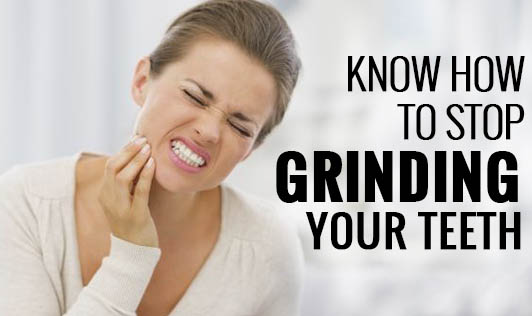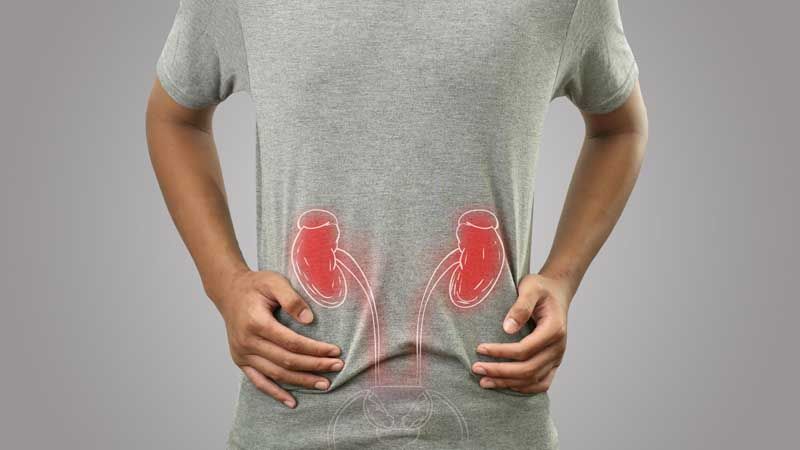Know How To Stop Grinding Your Teeth!
- 9 months ago
Have you ever woken up with a sore jaw, a dull headache, or noticed that your teeth feel more sensitive than usual? Do you catch yourself clenching your teeth when you're stressed or concentrating? If so, you might be experiencing bruxism, commonly known as teeth grinding. Bruxism is an unconscious habit that can happen while you're awake (awake bruxism) or during sleep (sleep bruxism). While occasional teeth grinding is not necessarily harmful, chronic bruxism can lead to severe consequences, such as tooth wear, jaw disorders, facial pain, and even sleep disturbances.
Bruxism is surprisingly common, affecting both adults and children. Many people don’t realize they have it until they start experiencing painful symptoms or their dentist notices signs of excessive wear on their teeth. Since sleep bruxism occurs unconsciously, it is often identified only when a partner hears the grinding noises at night or when complications arise. If left untreated, bruxism can cause permanent damage to your teeth and lead to more serious oral health issues.
Signs and Symptoms of Teeth Grinding
Bruxism can manifest in various ways, and recognizing the symptoms early can help prevent long-term damage. Some common signs include:
- Worn-down, flattened, or chipped teeth
- Increased tooth sensitivity due to enamel erosion
- Jaw pain, tightness, or soreness
- Headaches, particularly in the morning
- Earaches that are not related to infections
- Disrupted sleep patterns
- Clicking or popping sounds in the jaw (a sign of temporomandibular joint disorder - TMJ)
- Indentations on the tongue or inside of the cheeks due to clenching
If you experience any of these symptoms regularly, it may be time to take action to stop grinding your teeth before it leads to severe complications.
Causes of Teeth Grinding
Bruxism can be triggered by a variety of factors, including:
- Stress and Anxiety – High levels of stress, anxiety, or tension can cause unconscious clenching and grinding, both during the day and at night.
- Sleep Disorders – Conditions like sleep apnea and snoring are often linked to nighttime teeth grinding.
- Misaligned Teeth (Malocclusion) – If your teeth are not properly aligned, it can lead to bruxism as your jaw tries to compensate for the imbalance.
- Lifestyle Habits – Excessive consumption of caffeine, alcohol, or recreational drugs can increase muscle activity, leading to grinding.
- Medications – Some medications, especially antidepressants and psychiatric drugs, list bruxism as a possible side effect.
- Neurological Conditions – Disorders like Parkinson’s disease and Huntington’s disease can contribute to teeth grinding due to increased muscle activity.
- Genetics – If you have a family history of bruxism, you may be more prone to developing the condition.
How to Stop Grinding Your Teeth?
If you suspect that you grind your teeth, there are several effective ways to manage and prevent this habit. Here are some strategies you can try:
1. Use a Mouthguard or Splint
Wearing a custom-fitted mouthguard at night can help cushion your teeth and prevent further damage. Your dentist can create a protective night guard tailored to your bite, reducing the pressure on your teeth and jaw muscles.
2. Manage Stress and Anxiety
Since stress is a significant trigger for bruxism, finding effective ways to manage anxiety can help. Consider activities such as:
- Practicing meditation and mindfulness
- Engaging in deep breathing exercises
- Trying yoga or tai chi
- Keeping a journal to process emotions
- Engaging in hobbies that help you relax
3. Improve Your Sleep Hygiene
Poor sleep can contribute to bruxism, so improving your bedtime routine may help. Some tips include:
- Maintaining a consistent sleep schedule
- Avoiding screens (phones, tablets, TVs) before bed
- Creating a relaxing bedtime ritual (e.g., reading or listening to calming music)
- Using blackout curtains to eliminate light disturbances
4. Reduce Caffeine and Alcohol Consumption
Caffeine and alcohol can increase muscle activity and disrupt sleep, making teeth grinding worse. Try limiting coffee, energy drinks, and alcoholic beverages, especially in the evening.
5. Correct Dental and Jaw Alignment Issues
If misaligned teeth are contributing to your bruxism, your dentist may recommend braces, retainers, or other corrective treatments to realign your bite and reduce grinding.
6. Practice Jaw Relaxation Techniques
You can train your jaw to relax by performing simple exercises, such as:
- Gently massaging your jaw muscles
- Practicing controlled jaw movements (opening and closing slowly)
- Placing the tip of your tongue between your teeth to prevent clenching
7. Apply Warm Compresses
Applying a warm compress or heating pad to your jaw before bed can help relax the muscles and ease tension.
8. Stay Hydrated
Dehydration can contribute to muscle cramping and tension, including in the jaw. Be sure to drink enough water throughout the day to maintain muscle function.
9. Be Mindful of Clenching During the Day
If you catch yourself clenching your teeth while concentrating or stressed, make a conscious effort to relax your jaw. A simple trick is to keep your lips together but your teeth apart and rest your tongue against the roof of your mouth.
10. Consult a Dentist or Doctor
If bruxism persists despite trying these strategies, seek professional help. Your dentist may recommend advanced treatment options such as physical therapy, Botox injections to relax the jaw muscles, or cognitive behavioral therapy (CBT) to address underlying stress-related factors.
Final Thoughts
Teeth grinding might seem like a minor issue, but over time, it can cause serious dental and health problems. The key to preventing long-term damage is recognizing the symptoms early and addressing the root cause. Whether it’s reducing stress, using a mouthguard, or improving sleep hygiene, taking proactive steps can significantly reduce bruxism and its effects.
If you suspect you grind your teeth, don’t ignore the signs. Implement these preventive measures today and consult a healthcare professional for guidance. Protect your smile, preserve your dental health, and prioritize your overall well-being!








